In the realm of home and commercial cleaning, electric power washers stand out as a beacon of efficiency and convenience. This article delves into the essential aspects of electric power washers that users find most crucial. By breaking down their functionality, benefits, selection criteria, maintenance tips, and safety precautions, we aim to equip you with the knowledge to make an informed decision. Whether you’re a first-time buyer or looking to upgrade your current model, this guide will navigate you through the intricacies of electric power washers, ensuring your cleaning tasks are not just manageable but also environmentally friendly and cost-effective.
Table of Contents:
– Understanding electric power washers
– Key benefits of using an electric power washer
– How to choose the right electric power washer
– Maintenance tips for your electric power washer
– Safety precautions when using an electric power washer
Understanding electric power washers
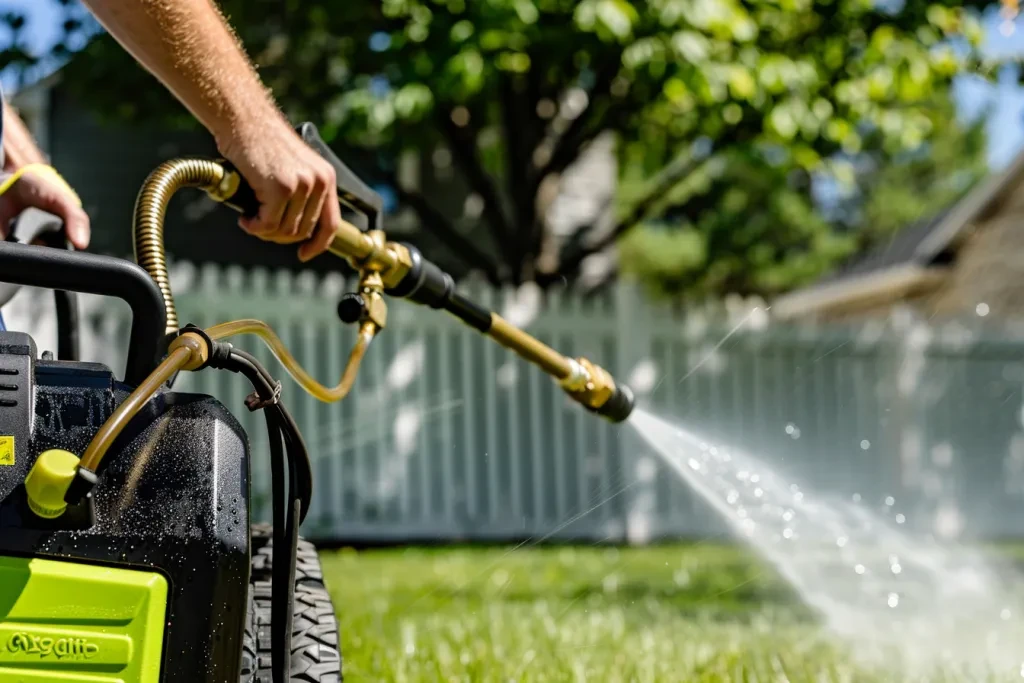
Electric power washers, at their core, are devices that use a high-pressure water spray to remove dirt, grime, mold, and loose paint from surfaces and objects such as vehicles, buildings, and concrete surfaces. Unlike their gas-powered counterparts, electric models are powered by electricity, making them more suitable for indoor use and quieter operations. They come in various sizes and power levels, tailored to both residential and commercial needs.
The mechanism behind these machines involves water being drawn into the unit, which is then pressurized by an electric motor-driven pump before being expelled through a spray wand. This process significantly enhances the water’s cleaning ability without the need for harsh chemicals, making it a preferred choice for eco-conscious users.
Understanding the PSI (Pounds per Square Inch) and GPM (Gallons Per Minute) ratings is crucial when discussing electric power washers. These metrics determine the machine’s cleaning power and efficiency, with higher values indicating a more powerful washer capable of handling tougher cleaning jobs.
Key benefits of using an electric power washer
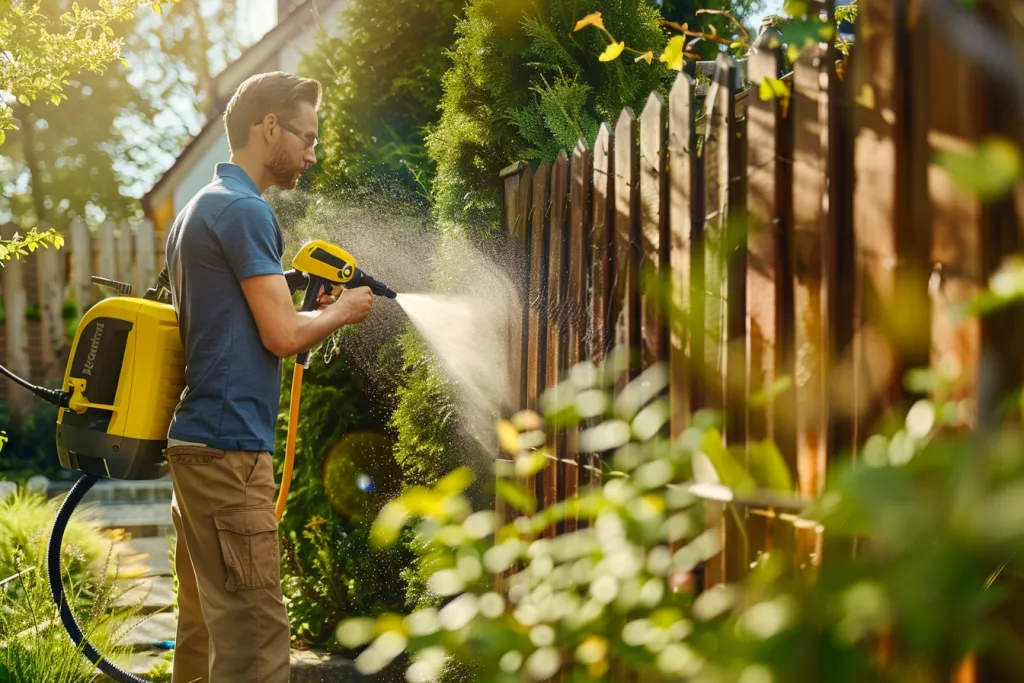
Electric power washers offer several advantages that make them an attractive option for many. Firstly, they are generally lighter and more compact than gas-powered models, making them easier to maneuver and store. This portability is particularly beneficial for residential users with limited storage space.
Another significant benefit is their lower noise level. Electric power washers operate much more quietly, reducing noise pollution and making them more suitable for use in residential areas or during early morning or late evening hours.
Moreover, electric power washers require less maintenance than gas models. Without the need for oil changes, spark plug replacements, or fuel refills, electric washers offer a hassle-free solution to cleaning tasks, saving both time and money in the long run.
How to choose the right electric power washer
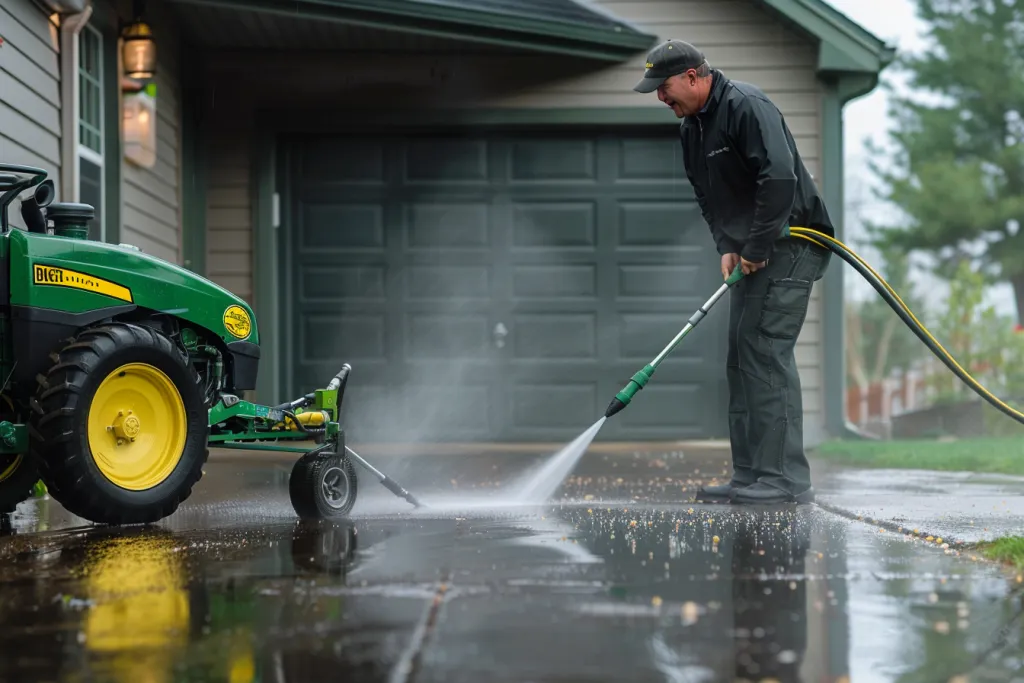
Selecting the right electric power washer involves considering several factors to ensure it meets your specific needs. Firstly, assess the types of tasks you intend to use it for. Light-duty models are suitable for smaller tasks like cleaning outdoor furniture, while medium to heavy-duty models are better suited for larger projects such as cleaning driveways or stripping paint.
The unit’s PSI and GPM ratings are also critical factors. A higher PSI and GPM mean more cleaning power, but it’s essential to choose a model that matches the sensitivity of the surfaces you’ll be cleaning to avoid damage.
Lastly, consider the washer’s features and accessories. Models with adjustable pressure settings, various nozzle options, and onboard storage for accessories offer greater versatility and convenience, enhancing your overall cleaning experience.
Maintenance tips for your electric power washer
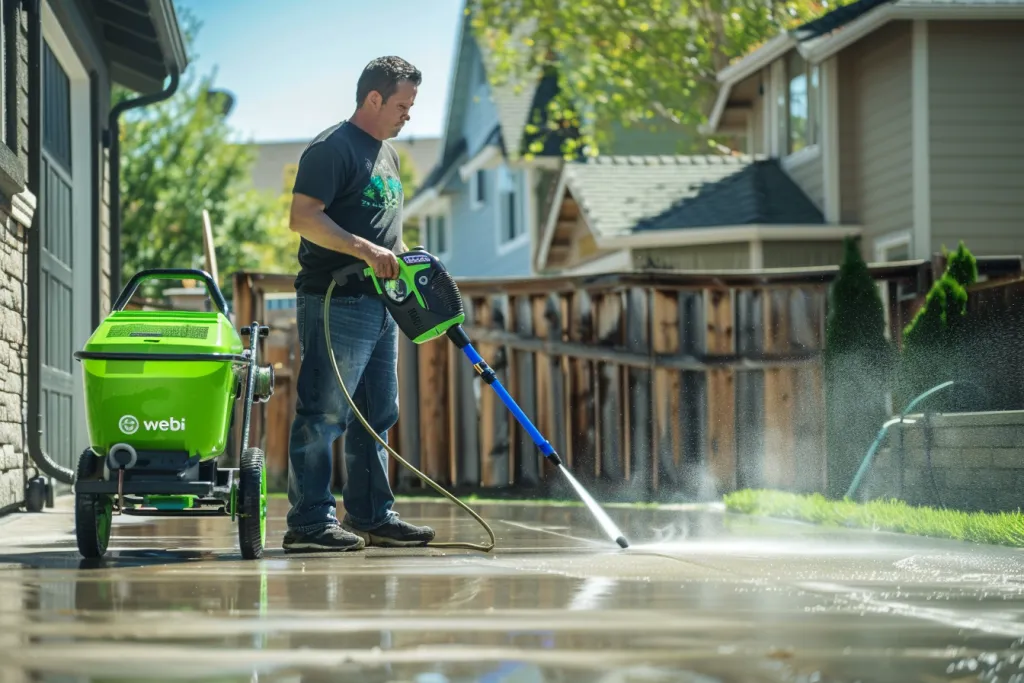
To ensure your electric power washer’s longevity and optimal performance, regular maintenance is essential. Always follow the manufacturer’s instructions for care and storage. After each use, it’s crucial to drain any remaining water from the machine to prevent internal corrosion and damage from freezing in colder climates.
Regularly check the hose for leaks or wear and replace it if necessary. Keeping the water inlet filter clean is also important to prevent debris from entering and damaging the pump.
Storing your electric power washer in a dry, frost-free environment will further protect its components and extend its lifespan, ensuring it remains a reliable tool for your cleaning needs.
Safety precautions when using an electric power washer
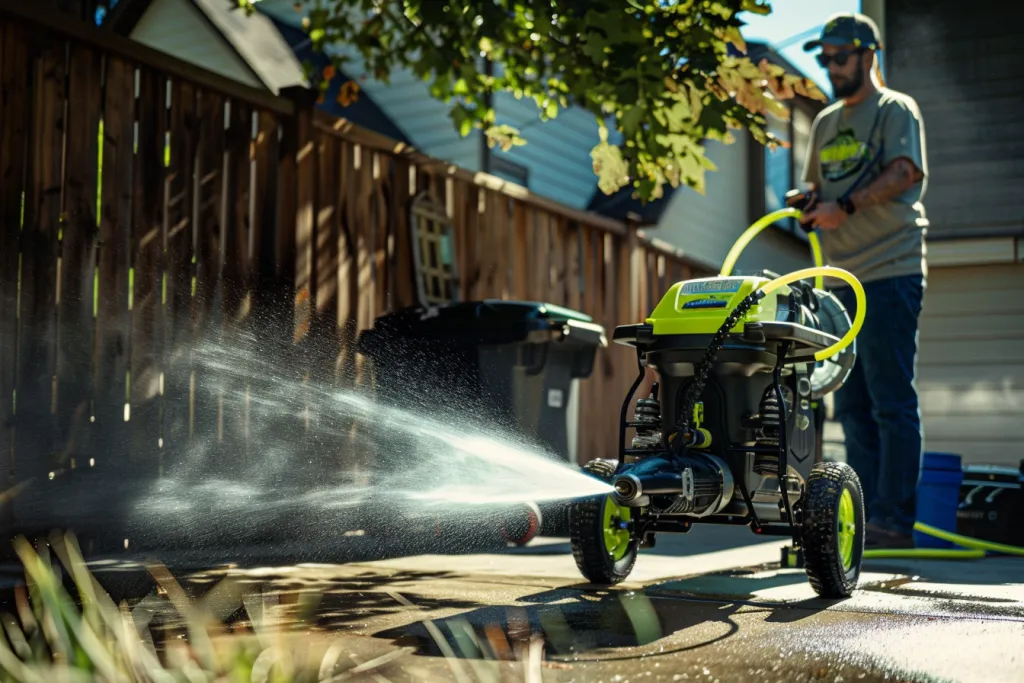
While electric power washers are incredibly useful, they require respect and caution during use. Always wear protective eyewear and clothing to shield yourself from debris. Be mindful of the electric power washer’s power cord to avoid tripping hazards and electrical risks, especially when working around water.
Never point the spray wand at people, animals, or electrical fixtures, and be cautious when cleaning surfaces above ground level to prevent falls. Understanding and respecting the power of your electric power washer will ensure a safe and effective cleaning process.
Conclusion
Electric power washers offer a blend of efficiency, convenience, and eco-friendliness, making them an invaluable tool for both residential and commercial cleaning tasks. By understanding their functionality, benefits, and maintenance requirements, and by adhering to safety precautions, you can harness the full potential of these machines. Choosing the right model will not only make your cleaning tasks easier but also contribute to a cleaner, more sustainable environment.




